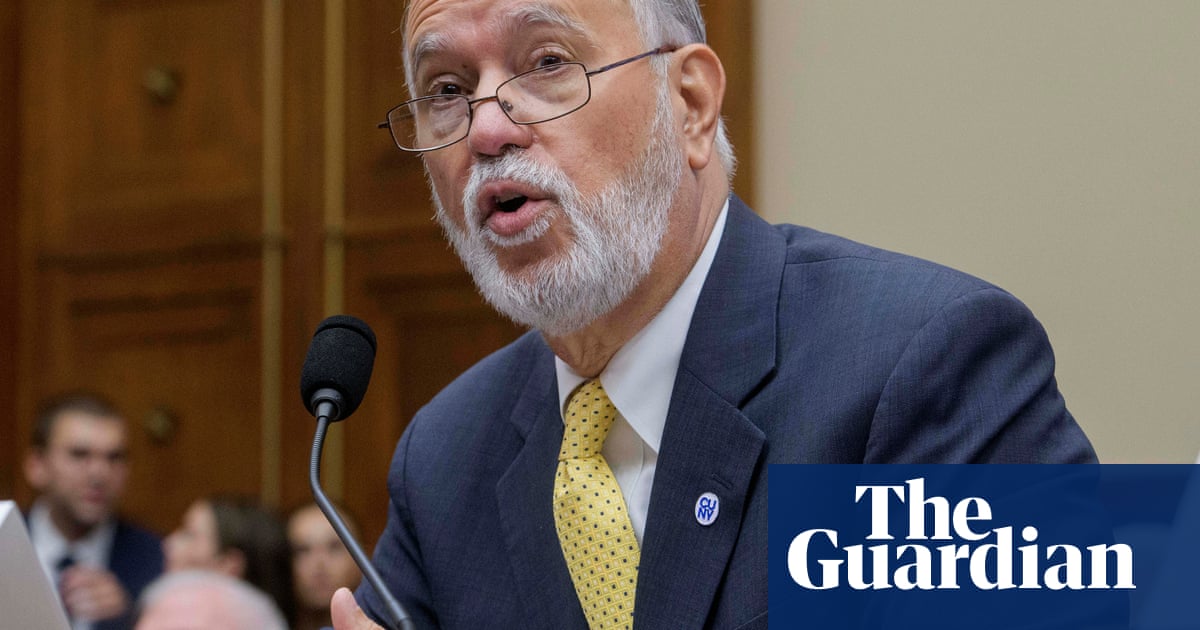### Lawmakers Challenge Academic Leaders in Antisemitism Hearing
In a significant hearing, lawmakers expressed deep concerns regarding antisemitism on college campuses, scrutinizing the leaders of three prominent universities: the University of California at Berkeley, Georgetown University, and the City University of New York (CUNY). This marks the final antisemitism hearing held by the House of Representatives since the escalating conflict in Gaza that commenced with attacks on October 7, 2023. Notably, the hearing revealed the tensions and differing approaches to addressing this sensitive issue among lawmakers.
—
### University Leaders Condemn Antisemitism
The university leaders—Georgetown’s interim president Robert Groves, CUNY’s chancellor Félix V Matos Rodríguez, and UC Berkeley’s chancellor Rich Lyons—opened the hearing by vocally denouncing antisemitism. Each leader emphasized their institutions’ commitment to combating hate and discrimination.
Groves underscored Georgetown’s prompt condemnation of the October 7 attacks, asserting, “Antisemitism is incompatible with living our mission; the same applies to Islamophobia and racism.” Lyons echoed this sentiment, acknowledging the disturbing rise of antisemitism and affirming Berkeley’s commitment to eradicating it. Similarly, Matos Rodríguez insisted on CUNY’s zero-tolerance approach toward antisemitic behaviors, particularly in reference to student-led encampments at various CUNY schools.
—
### Democrats Critique the Political Nature of Hearings
While the focus on antisemitism was apparent, Democratic lawmakers used the platform to critique the nature of the hearing itself. They expressed concerns that the hearings serve more as political theatre than genuine efforts to address the issues at hand.
Virginia representative Bobby Scott pointed out the disproportionate focus on antisemitism, highlighting that this was the ninth such hearing in 18 months, while issues like racism, xenophobia, and Islamophobia were noticeably absent from discussions. He argued for a more comprehensive approach to civil rights, urging his colleagues to recognize that antisemitism exists alongside other forms of discrimination.
—
### Trump Administration’s Impact on Civil Rights
The debate turned towards the legacy of the Trump administration, particularly its decisions influencing the enforcement of civil rights in higher education. Critics, including former deputy assistant secretary Matt Nosanchuck, suggested that the shuttering of federal agencies dedicated to civil rights protections has made Jewish students on college campuses more vulnerable.
Scott further criticized his fellow committee members for neglecting to address the firings within the Office for Civil Rights, which were part of a broader effort to dismantle key civil rights protections. He emphasized the need for his colleagues, especially those in power, to address antisemitism within their ranks instead of solely blaming academic institutions.
—
### Republican Scrutiny of Academic Practices
Republican lawmakers actively questioned the universities’ hiring practices and faculty affiliations, suggesting these elements could incite antisemitism. They directed tough questions to Matos Rodríguez regarding a controversial job posting at Hunter College that purportedly required candidates to adopt a critical view of issues like human rights and apartheid. Matos Rodríguez acknowledged the inappropriateness of the posting and promised immediate revisions.
Questions also targeted faculty union practices, particularly concerning support for the Boycott, Divestment, and Sanctions (BDS) movement. Representative Virginia Foxx pressed for clarification on how ideological views influence hiring decisions. Lyons defended Berkeley’s practices, stating, “We use academic standards to hire faculty. We don’t use ideological conditions.”
—
### Concerns Over Anti-Higher Education Sentiment
The hearings also uncovered apprehensions about a broader movement aimed at defunding higher education, which Democrats argued may be a covert objective behind the increased scrutiny. Representative Alma Adams highlighted the detrimental effect of withholding funding from K-12 schools, asserting that the discourse surrounding antisemitism was, in some instances, being weaponized against higher education institutions.
—
### Rising Tensions Among Committee Members
Tensions escalated throughout the hearing, showcasing the deep divisions between Republican and Democratic members. An exchange between Representative Elise Stefanik and CUNY Chancellor Matos Rodríguez exemplified the discord, as Stefanik threw accusations regarding university staff allegedly affiliated with antisemitic sentiments.
Mark Takano, a California representative, characterized the committee’s proceedings as a “kangaroo court,” underlining the fraught atmosphere. Such confrontations illustrated the broader struggle over how best to approach and remedy issues of hate and discrimination in academic settings.
—
This hearing highlighted not only the complexities of addressing antisemitism on campus but also the partisan differences on how to navigate these pressing concerns effectively. The responses from both lawmakers and university leaders underscore the urgent need for a balanced and inclusive dialogue about hate in all forms, reflective of the diverse landscape of American higher education.


